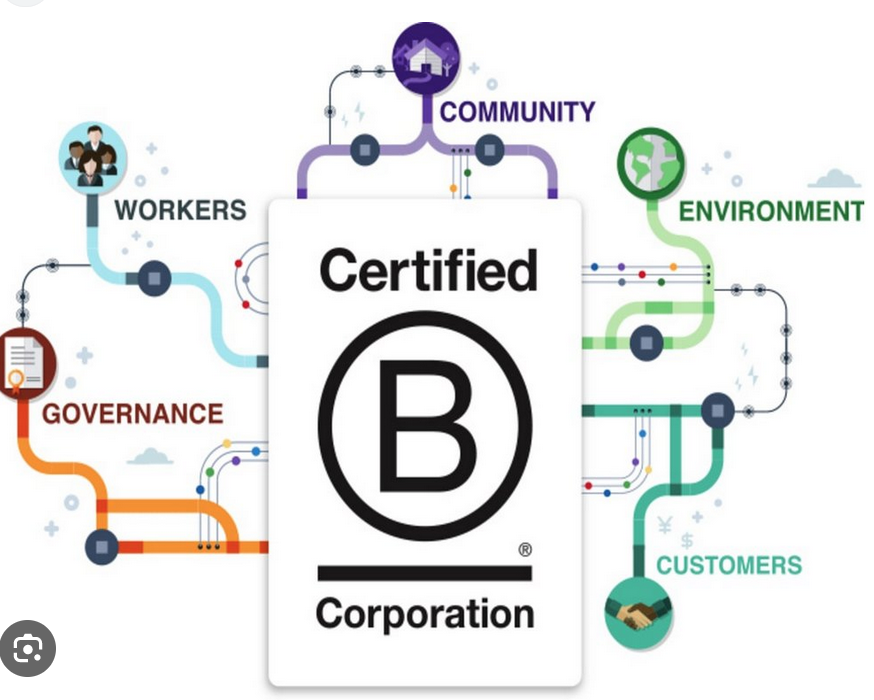
With the rise of B Corps and other guardrails to ensure purpose stands in stride with profit, companies are in a state of proving themselves.
In recent months, purpose-driven companies have come under scrutiny for achieving profitability.
“There is a misunderstanding that purpose and economic success are at odds,” Stuart Landesberg, cofounder and chief executive officer of Grove Collaborative, told WWD. “What Grove and other B Corps seek to prove is that creating benefits for the world and other stakeholders, when done well, can be great for shareholders as well, especially right now. The businesses that create the most value in the next decade will solve important problems for society — and B Corps are companies that have embraced that framework of creating societal value along with shareholder value.”
Known for its subscription-based, eco-friendly home, personal care and cleaning products, Grove Collaborative is one of few publicly traded B Corps, alongside Allbirds and Warby Parker. Its mission is to curb plastic waste in homes with the advent of plastic-free cleaning products and personal care.
But the reality is the numbers are, in fact, stacked against them. Less than 1 percent (or 0.12 percent) of listed companies are B Corps, or 46 companies out of 43,248 listed companies globally, per the most recent data from B Lab and the World Bank.
“A company’s financial value is always determined by its ability to generate returns,” Landesberg said. “Over the long term, businesses with stronger brands do trade at premiums — which makes sense. A strong brand is usually an indicator of understanding the times and one’s customers.” Last quarter, Grove Collaborative was able to further its value creation plan and target profitability in 2024 by managing to reduce its net loss by $77.7 million and adjusted earnings before interest, taxes, depreciation and amortization loss by $41.7 million in the second half of 2022. The company added “Wellness,” a hub for personalized health and wellness recommendations for families.
At least for now, B Corps are still circumventing a financial system ruled by profit.
In a WWD analysis of Yahoo Finance data, consumer-facing companies showed a pattern of stock price “overvaluation,” or where an asset trades for more than its intrinsic value. These included Allbirds (popularized by its wool trainers), Grove Collaborative, Warby Parker (purpose-driven eyewear brand) and Natura &Co Holding SA (personal care cosmetics). Food and beverage brands such as The Vita Coco Company Inc. (plant-based beverages), Vital Farms Inc. (pasture-raised eggs and poultry) and Zevia PBC (zero-calorie diet sodas) were also reportedly overvalued in Yahoo Finance. Home and energy solutions like AppHarvest (indoor farming), Lemonade Inc. (renter’s insurance) and VivoPower International PLC (U.K.-based solar power company) and Coursera (online education company) were also in the mix.
Therein lies the problem, according to Shahnawaz Malik, head of ESG and Sustainable Investing at the Long-Term Stock Exchange, where ThredUp recently dual-listed.
“Sustainability, ESG and traditional finance are not separate things,” he said, noting that, today, not all data is reflected in the share price. “There are an increasing number of data sets that are quite slowly being recognized by investors. It takes a bit of time to be understood and be reflected in the actual share price.”
Though how long, he’s not certain.
“B Corps are not overvalued, unless viewed in the sense of old, traditional metrics,” which rely predominately on capital growth — namely profit — over purpose. “B Corps and public-benefit corporations are fantastic, but that’s not the only way to be a sustainable company,” he said. “Fundamentally, this is the work we do at LTSE; the financial system itself is disconnected from the real needs of society.”
He pointed to the prevalence of ESG in proxy voting, where investors raise concerns on how a company manages ESG risks, including environmental management or diversity at work, as indicative of wider investor awareness.
Malik said mandated disclosures on urgent climate risks, for one, will be essential in advancing archaic financial systems. As soon as year-end, the Securities and Exchange Commission is looking to mandate climate disclosures, which means a more robust depiction of a company’s material risks. Last year, the European Union adopted a directive that requires large companies and listed companies to publish regular ESG reports.
“Climate is a very distinct issue at the moment,” Malik continued. “Companies should increasingly look to create climate-centric business models and, if able, align by 2030 goals.”
Read more – Finance Yahoo / WWD
